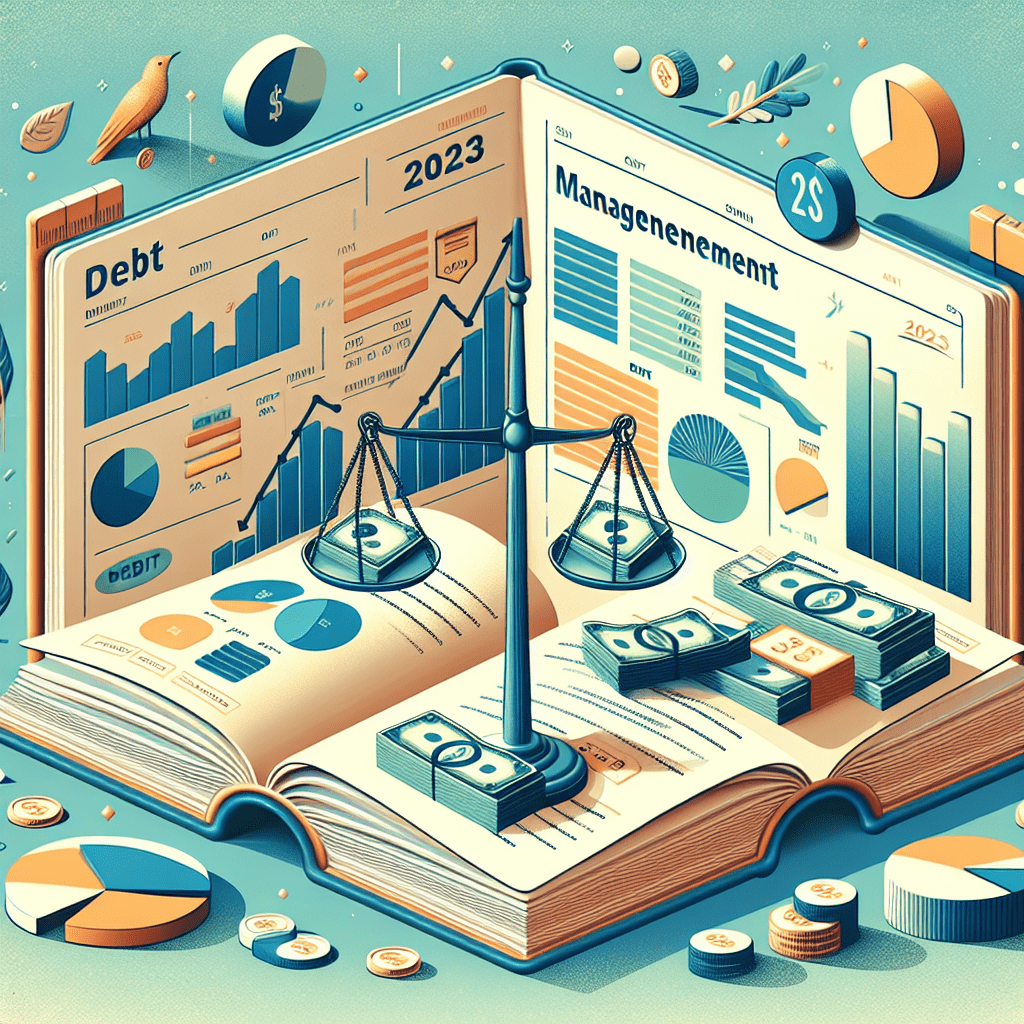In an ever-changing financial landscape, managing your debt effectively has become crucial for a smooth and stress-free financial journey. With the year 2023 approaching, it’s essential to equip yourself with practical strategies that can help you reduce your debt. From creating a realistic budget to exploring debt consolidation options, this article will guide you through some effective debt management techniques that can pave the way towards a debt-free future. So, grab a cup of coffee, sit back, and get ready to take charge of your finances in the coming year! Debt Management Strategies for 2023: How to Effectively Reduce Your Debt
Dealing with debt can feel overwhelming, but with the right strategies, you can take control of your financial situation and work towards becoming debt-free. In this article, we will explore ten debt management strategies that will help you pave the way to a debt-free future. From reviewing your current debt situation to seeking professional help, we will cover it all. So let’s dive in and discover how you can effectively reduce your debt in 2023.
Review Your Current Debt Situation
The first step towards managing your debt is to have a clear understanding of your current financial situation. Compile a list of all your debts, including credit card balances, personal loans, and any other outstanding debts. Calculate the total amount of debt you owe to get a comprehensive view of your financial obligations. Additionally, it’s essential to check your credit score, as it will provide valuable insights into your creditworthiness and help you strategize your debt repayment plan effectively.
Create a Budget and Stick to It
Creating a budget is crucial for managing your finances and paying off your debts. Start by tracking your income and expenses to understand how much money you have available to allocate towards debt repayment. Identify areas where you can cut expenses, such as reducing unnecessary subscriptions or eating out less frequently. Once you have a clear idea of your financial inflows and outflows, allocate a specific amount of money towards debt repayment each month. Sticking to your budget will ensure that you can meet your debt obligations while still having enough to cover essential expenses.
Implement a Debt Snowball Method
The debt snowball method is a popular debt repayment strategy that focuses on paying off debts from smallest to largest. Start by listing your debts from smallest to largest based on the outstanding balance. Make minimum payments on all debts to avoid defaulting, and allocate any extra funds towards paying off the smallest debt. Once you clear the smallest debt, take the amount you were paying towards it and apply it to the next smallest debt. This method creates momentum and motivation as you see your debts being eliminated one by one, fueling your determination to become debt-free.
Consider Debt Consolidation
Debt consolidation involves combining multiple debts into a single loan or credit card with a lower interest rate. This strategy can simplify your debt repayment process and potentially save you money on interest payments. Before opting for debt consolidation, make sure you understand the concept and evaluate if it is a viable option for your specific financial situation. Research different debt consolidation options and compare their terms and interest rates to find the best fit for you.
Negotiate with Creditors
If you find yourself struggling to meet your debt obligations, don’t hesitate to reach out to your creditors and explain your situation. Creditors are often willing to negotiate lower interest rates, extended payment terms, or even debt settlements if they believe it will improve the chances of them being repaid. Be honest and transparent about your financial struggles and propose a mutually beneficial solution. Alternatively, you can consider hiring a debt negotiation company that specializes in negotiating with creditors on your behalf.
Explore Balance Transfer Options
Balance transfers can be an effective way to consolidate your credit card debts and take advantage of lower interest rates. To explore this option, you need to understand how balance transfers work. Typically, you transfer the balance of higher-interest credit cards to one with a lower interest rate. Compare balance transfer offers from different credit card companies, taking into account any fees involved. Calculate the potential savings you could achieve by transferring your balances and make an informed decision.
Cut Down on Expenses
Reducing your expenses is a crucial step in managing and paying off your debts. Analyze your spending habits and identify areas where you can cut back. Eliminate unnecessary expenses like dining out or subscription services that you don’t utilize frequently. Finding ways to reduce your monthly bills, such as negotiating better rates for utilities or bundling services, can also make a significant difference in your overall financial situation. Every dollar saved can be put towards debt repayment and bring you closer to your goal of becoming debt-free.
Increase Your Income
While cutting down on expenses is one way to free up cash for debt repayment, increasing your income can provide an even bigger boost. Explore part-time job opportunities or consider starting a side business or freelancing to generate additional revenue. If you have been performing well at your current job, negotiate for a raise or promotion that aligns with the value you bring to the organization. By increasing your income, you can accelerate your debt repayment journey and achieve financial freedom sooner.

Build an Emergency Fund
When working towards reducing your debt, it’s crucial to have a safety net to prevent falling back into the cycle of borrowing. Building an emergency fund should be a part of your debt management strategy. Set aside a portion of your income each month to build a savings cushion that will cover unexpected expenses. Aim to save three to six months’ worth of living expenses to provide financial security and ensure that you can manage unforeseen circumstances without resorting to credit cards or loans.
Seek Professional Help
If you find yourself overwhelmed or struggling to make progress with your debt management strategies, seeking professional help can be a wise decision. Consult with a credit counselor who can provide personalized guidance and help you create a debt management plan tailored to your specific needs. They can negotiate with creditors on your behalf, provide financial education, and offer ongoing support on your journey towards becoming debt-free. Additionally, if your debt situation is severe and other options have been exhausted, researching bankruptcy options with professional assistance may be necessary.
In conclusion, managing and reducing your debt requires proactive strategies and a commitment to sticking to your financial goals. By reviewing your current debt situation, creating a budget, implementing a debt snowball method, considering debt consolidation, negotiating with creditors, exploring balance transfer options, cutting down on expenses, increasing your income, building an emergency fund, and seeking professional help when needed, you can effectively reduce your debt in 2023. Remember, achieving financial freedom is possible with determination, discipline, and wise financial decision-making.



